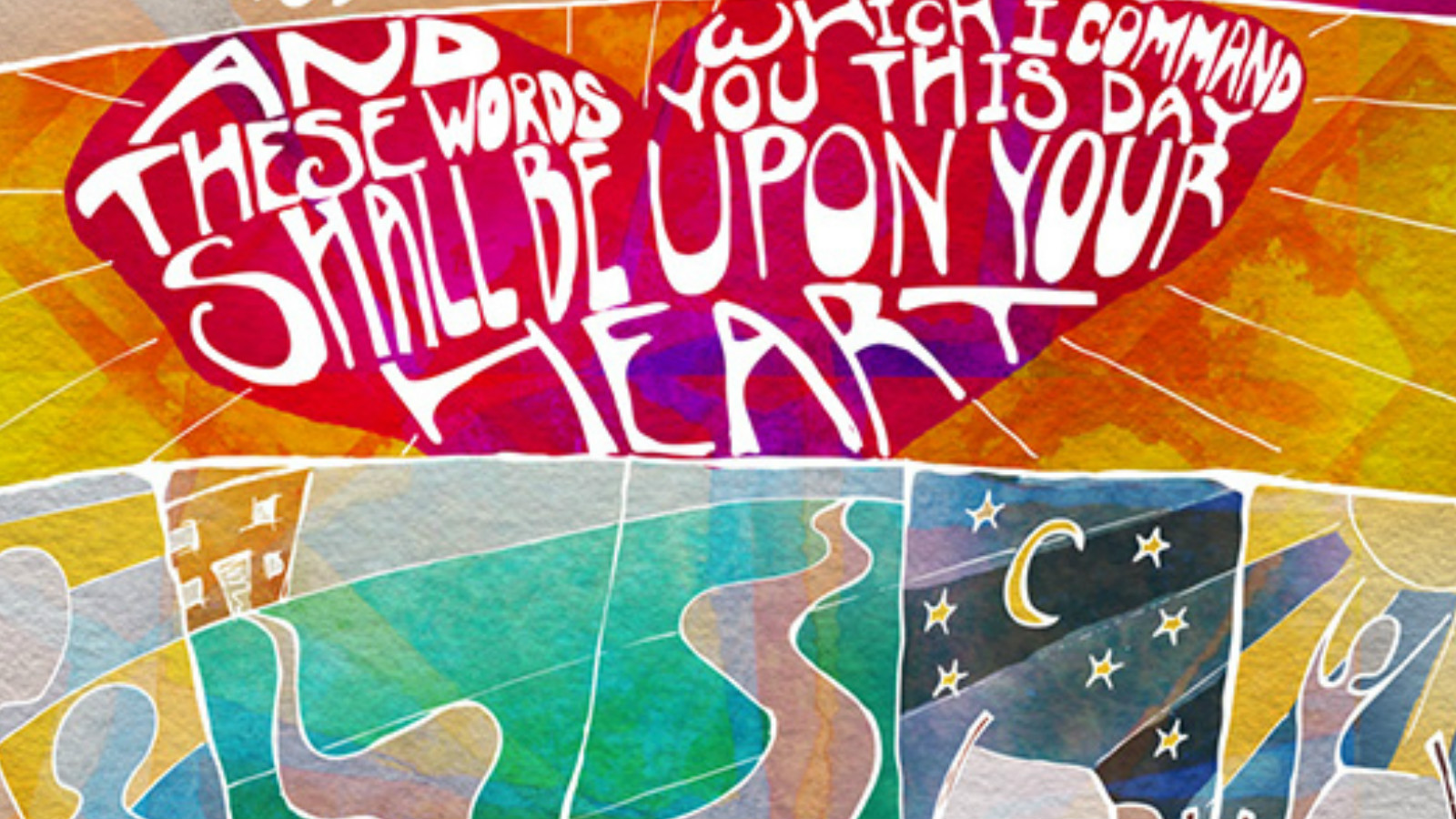Commentary on Parashat Vaetchanan, Deuteronomy 3:23-7:11
The Book of Deuteronomy is often described as Moses’ review of the Torah, but in its deepest sense it is a meditation on the nature of Torah. Moses teaches some new laws and refreshes the old ones, and he argues for the centrality of the Torah and the commandments. But he also offers a nuanced perspective on the limits of Torah and how it must be approached with care and curiosity — even caution. This perspective invites us to think critically about the role of Torah in our lives as active producers of, and engagers with, the text — not just as passive recipients and obeyers.
Much of this conversation hangs on a single verb, which we first encounter in Parashat Vaetchanan.
וְזֹאת הַתּוֹרָה אֲשֶׁר שָׂם מֹשֶׁה לִפְנֵי בְּנֵי יִשְׂרָאֵל.
This is the teaching that Moses placed [sam] before the Israelites. Deuteronomy 4:44
Many readers will be familiar with this verse, which is recited in many synagogues as the Torah is displayed after the public reading, but the language is a little strange. Why does it say that Moses “placed” the Torah before the people? Why didn’t he give it, or maybe better, teach it?
In the Talmud, we encounter a significant but difficult truth about the Torah embedded in this verb.
With your help, My Jewish Learning can provide endless opportunities for learning, connection and discovery.
Rabbi Yehoshua ben Levi said: What is the meaning of that which is written: “And this is the Torah which Moses put [sam] before the children of Israel.” If one merits it, the Torah becomes a potion [sam] of life for him. If one does not merit it, the Torah becomes a potion of death for him. Yoma 72b
Using talmudic wordplay, Rabbi Yehoshua ben Levi observes that the Hebrew word for “placed” is a homophone for the Hebrew word for “potion.” From this, he argues that the nature of the Torah is not absolute, but relative. The kind of person you are and the way that you approach the Torah determines whether or not you will find the Torah life-giving or life-taking, invigorating or exhausting. According to this teaching, the Torah is not properly thought of as something that transforms us, but rather it is we who transform the Torah — through interpretation and application, but perhaps most importantly, through our attitude. We determine the nature of the Torah based on our own nature.
The question is: How? How does one become the sort of person for whom the Torah is a blessing instead of a burden? Where does this elusive merit come from?
A mishnah in Makkot offers this answer:
Rabbi Hananiah ben Akashia says: “The Holy Blessed One desired to bring merit to Israel, therefore He gave them much Torah [to study] and many commandments [to perform]: as it says, “The Lord desires [his servant’s] vindication, that he may magnify and glorify [His] teaching.” Makkot 3:16
According to this mishnah, the Torah and the commandments provide us with opportunities to find merit. In other words, what Rabbi Yehoshua ben Levi tells us can be either life-giving or life-taking based upon our merit is the very thing that Rabbi Hananiah ben Akashia says is the source of the merit itself! Rabbi Hananiah ben Akashia does not take a selective or cautious approach to the Torah. He thinks that the goal and the function of Torah is merit and that we need to take the Torah upon ourselves and approach it with confidence and joy. The trepidation and anxiety embedded in Rabbi Yehoshua ben Levi’s approach seems quite far from the outlook of Rabbi Hananiah ben Akashia.
Yet perhaps both Rabbi Yehoshua ben Levi’s wariness and Rabbi Hananiah ben Akashia’s confidence are necessary to approach Torah successfully. Perhaps it is precisely the belief that the Torah brings merit is what makes us the kind of meritorious people that Rabbi Yehoshua ben Levi says will make Torah a positive force in our lives.
If we choose to embrace Torah completely and enthusiastically, as Rabbi Hananiah ben Akashia urges, while holding on to the full awareness that it can be both complicated and difficult, as per Rabbi Yehoshua ben Levi, then and only then are we set up to derive the goodness inherent in Torah. Both perspectives are necessary to avoid the pitfalls of an unhealthy or unbalanced approach. The Torah can be distorted — or distorting, harmful even. But by recognizing this possibility, and choosing to engage with it anyway, we enter into the relationship prepared for the risks and capable of weathering whatever storms arise. It’s only when we’re unaware that something could be misapplied or misunderstood that our innocence invites us to fail. The caution of Rabbi Yehoshua enables the confidence of Rabbi Hananiah ben Akashia, while the latter’s confidence ensures the former’s followers that the risk is indeed worthwhile.
In Parashat Vaetchanan, Moses places the Torah before the people and says: Deal with this wisely. I am promising you that this is hard, that it requires careful attention and that there is a possibility that you may not succeed. But I promise you that it is worth it. I provide you with this warning so that you can be successful, so that you will be strategic as well as loving in ensuring that the Torah is a source of blessing and of life.



